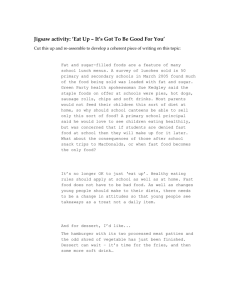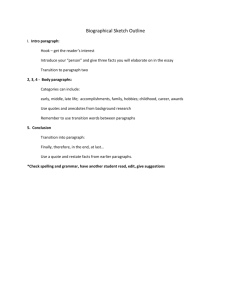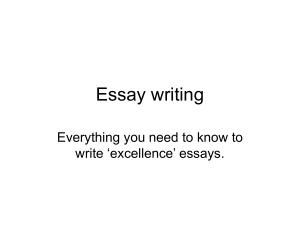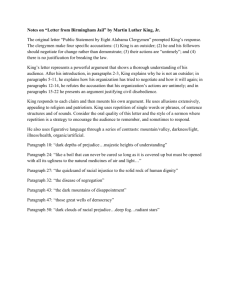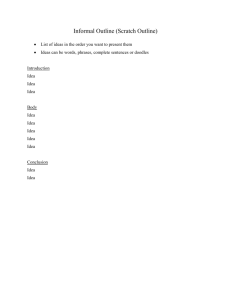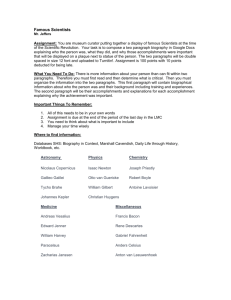Editing checklist: Feature articles
advertisement
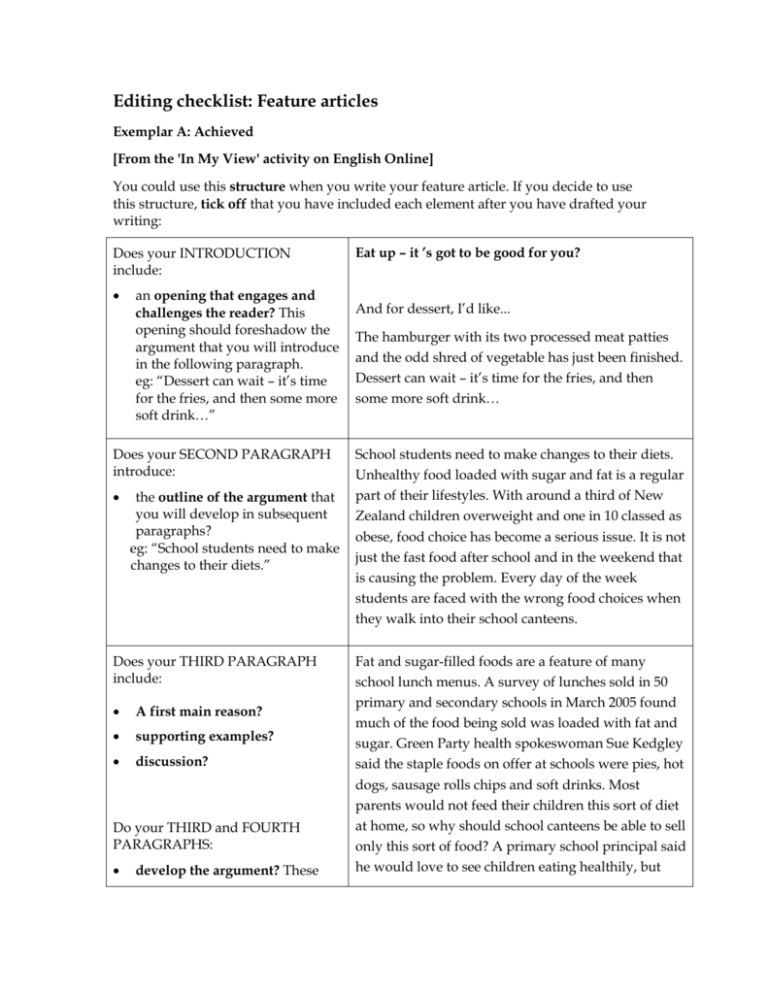
Editing checklist: Feature articles Exemplar A: Achieved [From the 'In My View' activity on English Online] You could use this structure when you write your feature article. If you decide to use this structure, tick off that you have included each element after you have drafted your writing: Does your INTRODUCTION include: an opening that engages and challenges the reader? This opening should foreshadow the argument that you will introduce in the following paragraph. eg: “Dessert can wait – it’s time for the fries, and then some more soft drink…” Does your SECOND PARAGRAPH introduce: the outline of the argument that you will develop in subsequent paragraphs? eg: “School students need to make changes to their diets.” Does your THIRD PARAGRAPH include: A first main reason? supporting examples? discussion? Do your THIRD and FOURTH PARAGRAPHS: develop the argument? These Eat up – it ’s got to be good for you? And for dessert, I’d like... The hamburger with its two processed meat patties and the odd shred of vegetable has just been finished. Dessert can wait – it’s time for the fries, and then some more soft drink… School students need to make changes to their diets. Unhealthy food loaded with sugar and fat is a regular part of their lifestyles. With around a third of New Zealand children overweight and one in 10 classed as obese, food choice has become a serious issue. It is not just the fast food after school and in the weekend that is causing the problem. Every day of the week students are faced with the wrong food choices when they walk into their school canteens. Fat and sugar-filled foods are a feature of many school lunch menus. A survey of lunches sold in 50 primary and secondary schools in March 2005 found much of the food being sold was loaded with fat and sugar. Green Party health spokeswoman Sue Kedgley said the staple foods on offer at schools were pies, hot dogs, sausage rolls chips and soft drinks. Most parents would not feed their children this sort of diet at home, so why should school canteens be able to sell only this sort of food? A primary school principal said he would love to see children eating healthily, but paragraphs outline two main reasons you have taken this position with supporting examples and discussion, each developed in separate paragraphs. was concerned that if students are denied fast food at school then they will make up for it later. What about the consequences of those after school snack trips to MacDonalds, or when fast food becomes the only food? The documentary Supersize Me showed what can happen when someone eats only fast downhill. He gained weight and his cholesterol levels went up. Supersize Me is about a man on a 100% fast food diet, but how far short of type of diet are many school students? Many students start the day with breakfast foods high in sugar and fat, as well as eating fast food from the school canteen each day and possibly a fast food snack after school. Does your FIFTH PARAGRAPH include: a counter argument that opposes your position? Having briefly developed this counter argument, you will refute this at the end of this paragraph: eg:” Some people might argue that no-one is forced to eat fast? supporting examples? Does your CONCLUSION: Restate your argument, making a final comment to reaffirm your position? eg “…there needs to be a change in attitudes so that young people see takeaways as a treat not a daily item” Some people might argue that no-one is forced to eat fast food. People eat it because it is quick and convenient. Stopping at MacDonalds or KFC on the way home can be much easier than first going to the supermarket then cooking dinner. Eating fast food is just another part of people’s busy lifestyles. In many families, there is no time to make lunch in the morning before rushing out the door and it is much easier to buy lunch at school. That is where the convenience of fast food becomes a problem when then the only choices available at school are loaded with fat and sugar. It can be impossible for students to eat healthily during the day if all the school canteen offers is pies, chips and soft drinks. It’s no longer OK to just ‘eat up’. Healthy eating rules should apply at school as well as at home. There should be healthy eating rules in school and at home. Fast food does not have to be bad food. As well as changes young people should make to their diets, there needs to be a change in attitudes so that young people see takeaways as a treat not a daily item.
